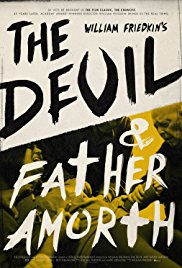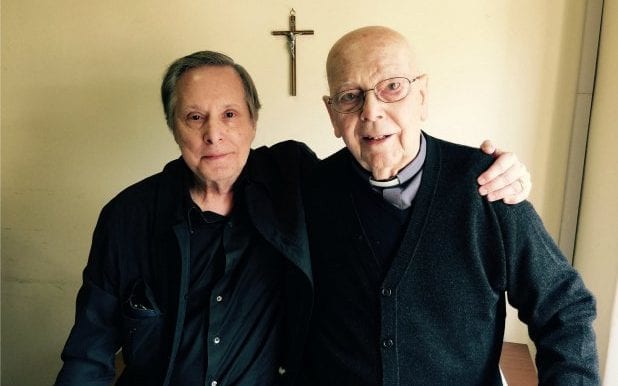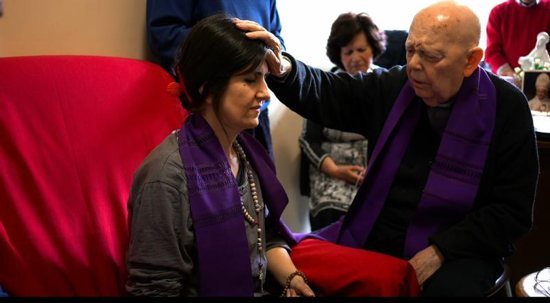By Glenn Dunks
 It’s becoming more common for directors known for fictional narrative cinema to work in the documentary medium as well. Not all of them land as successfully as, say, Ava DuVernay who managed a Best Documentary nomination at the Oscars as her first nod, despite previous critically acclaimed narrative features including even a Best Picture nominee. Documentary is, after all, just another form of building a narrative. There’s no real reason why telling a story in that form ought to be any different to building one around real people and real locations.
It’s becoming more common for directors known for fictional narrative cinema to work in the documentary medium as well. Not all of them land as successfully as, say, Ava DuVernay who managed a Best Documentary nomination at the Oscars as her first nod, despite previous critically acclaimed narrative features including even a Best Picture nominee. Documentary is, after all, just another form of building a narrative. There’s no real reason why telling a story in that form ought to be any different to building one around real people and real locations.
The Devil and Father Armoth, now in limited release and available on digital platforms, isn't William Friedkin's first documentary. He's made short docs like 2007’s The Painter’s Voice, 1985’s Putting it Together: The Making of the Broadway Album for Barbra Streisand, and the feature-length Conversations with Fritz Lang. That latter example, a 1975 film, followed Friedkin’s one-two-three narrative punch of The Boys in the Band, The French Connection and The Exorcist.
 The filmmaker and his subject
The filmmaker and his subject
The Exorcist remains his most famous film and also lays the groundwork for The Devil and Father Amorth...
Unfortunately, I think it’s safe to say that Friedkin is not one of those directors who can produce documentary work with the skill and zeal of his feature films. Friedkin is unable to recreate the sense of dread and horror found in The Exorcist, and instead has crafted a film that unfolds more like a sweeps week episode of Dateline from the 1990s. Friedkin himself appears on screen to introduce himself and the supposed true story behind his and William Peter Batty’s famed devil possession flick before detailing his efforts to finally witness a real exorcism. It’s hard to really tell whether this very old-fashioned style is funny or refreshingly earnest, but in the moment I couldn’t help but snicker as Friedkin took me on this weird tour of Exorcist filming locations and setting the scene for the exorcism of an Italian woman named Cristina to be performed by Father Amorth, Italy’s most famous and beloved exorcist (which is indeed a thing).
There is intrigue to be found in the unwavering belief that many Italians still have in this practice, but the film doesn’t investigate it. That would have been a much-welcomed detour considering that the exorcism sequence – which arrives relatively early and runs for around 15 minutes – is not the sort of pea-spewing, head-twirling flamboyance that people familiar with The Exorcist’s most famous moments might expect. Not that it should be, but it’s a curiously unexciting passage not helped by Friedkin’s single-camera, low-res camera work (per the priest’s wishes).
Curiously, the 1973 film's classic score is used throughout. That's a strange choice since its often high-pitched strings are an overbearing presence in a film that’s so reserved elsewhere. No sense of gothic mystery is to be found with not a single artfully shot frame in the entire film. (Remember, The Exorcist was so well shot that they actually used a film still as the poster and it's stunning.)
Cynicism is something that The Devil and Father Amorth has just about none of. Friedkin spends the rest of this relatively short documentary (it’s only 68 minutes) discussing his video of the exorcism with a variety of health experts who all curiously seem to believe that something is going on with Cristina. This includes Neil Martin, MD, the Chair of Neurosurgery at UCLA's Medican Centre who actually appears to believe what he's seeing. That's rather alarming if you ask me!

Even once it’s revealed that Father Amorth has been unsuccessful multiple times at ridding Cristina of what she believes to be the devil inside her, Friedkin is never less than enraptured with him. He even claims of Father Amorth “I’ll never forget him, he enriched my life”, which – if I may be so blunt – sounds a bit excessive for a man you only just met who wasn't able to actually do what he said he could! Friedkin clearly believes what he is documenting. His unwavering belief in this subject is something that on recollection likely helped make The Exorcist the enduring classic it is. But it's also why this documentary is ultimately so disappointing beyond the mere creakiness of its form.